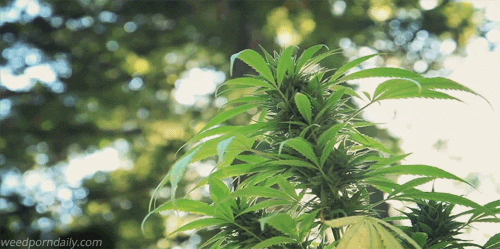On November 8th, 2016, citizens of Arizona will vote to decide whether or not they want to legalize recreational use, production, and sale of cannabis for adults over 21. The Arizona Marijuana Legalization Initiative, or Proposition 205, would establish a system to allow for the cultivation, production, sales, and taxation of recreational cannabis. When does the law come into effect? You won’t be able to smoke weed legally until September 1st, 2018 — *nearly 2 years later.Where can I smoke it? You can’t smoke in public, or it would result in a $300 fine. Landlords would be allowed to discriminate against cannabis consumers by banning the possession and smoking cannabis on their property if they are a public establishment or receive federal funding. Driving or operating machinery under the influence of cannabis would be illegal, but there is no set standard for determining intoxication (unlike Colorado, where 5 nanograms of active THC per milliliter of blood or greater is considered “under the influence”). Smoking on school property, or even during off-campus school-sponsored events will be illegal (no smoking on field trips!).*How will recreational pot shops work? Business owners and medical marijuana dispensaries can apply for a recreational cannabis license. The application fee is $5000, and if they are approved, the license will cost an additional $20,000. The number of pot shops can’t exceed 10% of the number of the state’s liquor stores. Cannabis smoking lounges, or “dab bars”, won’t be allowed to apply for licenses until 2020, or possibly later. Is my dealer going out of business? You bet your ass. Unless you dealer is rich enough to buy a recreational cannabis license from the state at a cost of around $25k, they will not be able to sell or redistribute cannabis — even for “donations”. Can my boss fire me for weed? Yep. Employers are empowered to prohibit employees from consuming cannabis, even if you smoke when you’re not on the clock. How do the taxes work? A 15% tax would be levied on the sale of cannabis. Once the program pays for itself, proceeds will be designated to education and healthcare. 80% would be given to education for the costs of overhead (construction, teacher salaries, etc), as well as providing full-day kindergarten classes. Any extra kindergarten money unused by the schools would be returned to the state. The other 20% would be designated to education on drug abuse. Who’s going to be in charge of controlling everything? Gov. Doug Ducey is tasked with appointing a director of the Department of Marijuana Licensing and Control. He would also appoint seven people to the marijuana commission, four people connected to the cannabis industry, and three people who are not. The appointments would last three years. No more than four people could be from a single political party, and no more than two from a given county. The marijuana commission will be in charge of approving or denying pot shop applications, hold hearings, and keep records of what they do. There will also be a cannabis code inspection unit in charge of looking into unlicensed shops and underage sales. How will the pot be packaged? Manufacturers are required to mark packaging with indication that it contains cannabis, as well as the amount of THC, CBD, number of servings, list of ingredients, allergens, and solvents (similar to food and over the counter drugs). The law requires warning labels, but does not set specific standards on what they may entail. And there is no defined requirement for child-proof packaging, however the measure does state the marijuana commission will set standards for them down the line. Can my city ban cannabis? Yes and no. Local governments would be allowed to regulate and limit cannabis businesses, meaning they have the option to ban pot shops. But they will not be able to ban private possession and use for adults of age. What rules haven’t been decided yet? The Department of Marijuana Licensing and Control has to decide on:
- the qualifications for a pot shop license
- regulations for indoor and outdoor cultivations (lighting, security, alarms, etc)
- requirements for secure transportation and storage of cannabis
- tracking procedures for the production, manufacturing, transportation, and sale of cannabis
- health and safety standards for cannabis production (pesticides, additives, etc)
- requirements for packaging (child-proofing, “poison prevention”)
- requirements for marketing and advertisement of cannabis
- procedure to for the transference of recreational cannabis licenses
-
limitations on cultivation (number of plants)
Related References: - Proposition 205 (PDF)
-
ballotpedia.org/Arizona_Marijuana_Legalization,_Proposition205(2016 text: Ballotpedia: Prop 205)
Make sure to check out our Arizona tag for the latest local news and activism, our State by State guide, and check out our Weeducation section for more knowledge about cannabis. Stay regular super stoners~


